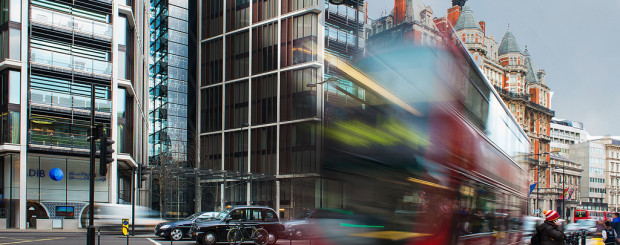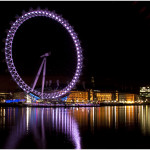How to find Cheap Accommodation in London
London can be an expensive place to live. The best advice for expats to take is not to rush into sourcing your accommodation and to do your homework first.
Balancing Travel and Accommodation
It is understandable why expats might base their decisions mainly on how much their accommodation is going to cost them, but property value and rental rates should not be thought of in isolation from the other factors that will affect how much it costs to live in London.
The first thing to help you get your bearings in the complex world of London living is to understand that Transport for London has helpfully sliced the capital up into a number of fare zones, broadly extending outwards from the city centre. As you might expect, housing prices decrease the further from the centre you live, although fare prices into the centre obviously increase. Zones 1 to 6 are situated within Greater London, while zones 7 to 9 are in the so-called ‘home counties’, a loosely defined group of counties that border Greater London.
If you are on a budget, there is little point in considering a property within zones 1 and 2 which include Central London (the City, West End, Westminster, Mayfair, Knightsbridge, etc.) Chelsea, Kensington, Hammersmith and Fulham. There are exceptions to this rule, and one notable exception is the bustling commercial centre of Putney, in the district of Wandsworth, which sits on the boundary of zones 2 and 3 and is popular with expats from New Zealand, Australia and South Africa.
But in general, most expats will be looking for accommodation in zones 3 to 6, which means longer (and more expensive) commutes to the centre. Of course, if you are working outside the centre, your task is that much easier, but if you’re planning to commute you will need to hit that sweet spot between transport time and costs and accommodation rates.
Why South London Might Suit
Many expats find that the ideal compromise between distance and cost is to be found in areas of South London.
Wimbledon has a sizeable community of expats from both South and North Africa, as well as Australia and Poland, and is blessed with plenty of green space, including the famous Wimbledon Common. Wimbledon is also well-connected to the centre, with overland rail connections to Clapham Junction and Waterloo, tube access to the Northern and District Lines and a night bus to the city centre.
Clapham, with its spacious common offering numerous open-air events, is another area worth investigating. Nearby Clapham Junction station (the busiest in Europe) operates no fewer than 35 city centre trains every hour.
Although Wandsworth is out of most expat’s budget, nearby Tooting is better value and attracts a large number of immigrants from Australia, South Africa and New Zealand. It is rapidly growing in popularity and is home to the Tooting Bec Lido, the UK’s largest open air swimming pool (by surface volume).
Do Your Research
The only way you are going to find the ideal blend between location and price is to spend as much time as possible investigating the various areas and transport options and weighing up the pros and cons of each.
The Transport for London website has all the information you need on transport types, times and costs. A handy rule of thumb, if you don’t fancy trawling through timetables, is that each tube station from the centre adds approximately an average of three minutes to your journey time. As you will see, this will mean commutes of over an hour in some areas of zones 5 and 6.
Renting Your First Flat (apartment)
Most expats will be looking to rent an apartment (generally termed a ‘flat’ in London), rather than buy outright, and estate agents, newspapers, magazines and sites like Prime Location, London Property Watch and Loot are all useful sources of property information, as well as asking resident friends and colleagues to keep an ear to the ground..
Renting your first flat can be a daunting experience, so here are a few tips to help you:
- Bring copies of your latest bank statements
- Ask your employer to write a letter confirming your continuing employment
- Ensure your landlord or landlady will be depositing your security deposit (a sum of money returned at the end of your tenure minus any damage expenses) in the government’s Deposit Protection Scheme– a legal requirement!
- Ask to see a recent (less than one year old) Gas Safety Certificate if the flat has gas – also a legal requirement!
- Sign an Assured Shorthold Tenancy Agreement, preferably with a protected fixed period of at least six months
- Enquire who is managing the property. Ideally, a local landlord or landlady, or an agency will be in charge so that maintenance issues can be resolved promptly
If you are really strapped for cash, or you are looking to move to a more central location than you can really afford, consider the possibility of sharing a flat with a friend or colleague.
Do you Need a Car?
If you are including a car amongst your expenses, ask yourself if it is really necessary. London’s developed bus, rail, tube and cycle network has led to lots of residents dropping their cars. Taking the costs of fuel, tax, MoT test, servicing, insurance, breakdown cover and the notorious congestion charge out of the equation may leave you with enough money to move to a more central location than you were considering, where you will have even less need for a car.








